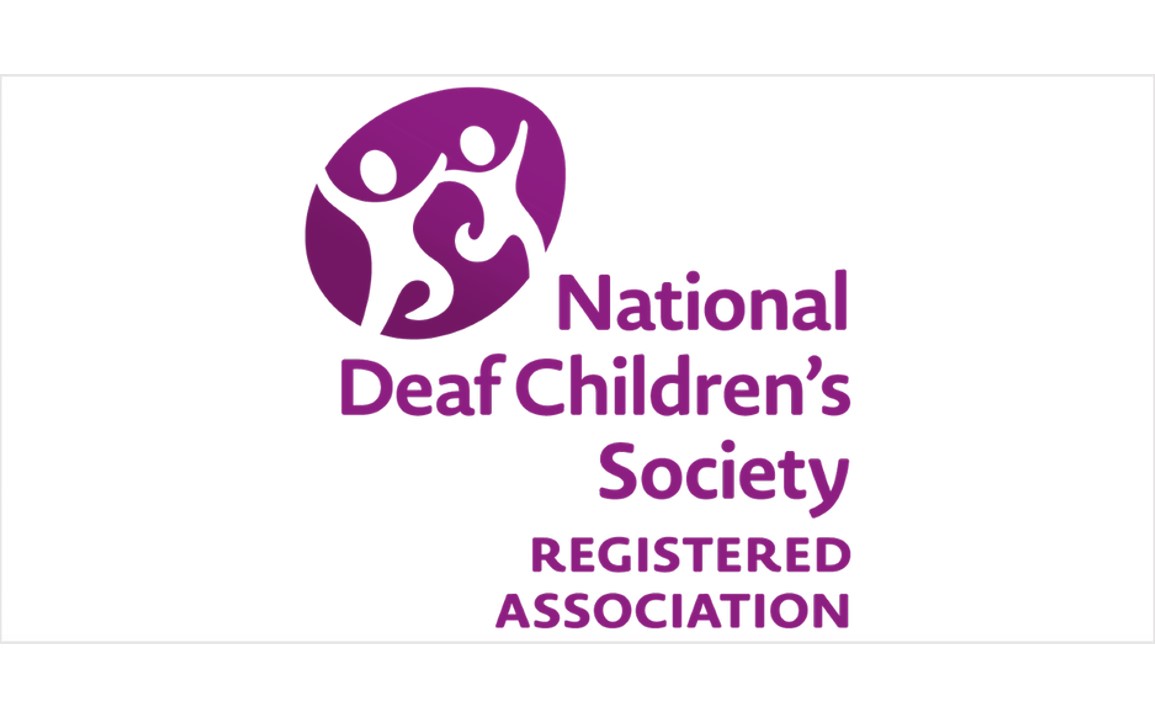SAFEGUARDING CHILDREN, YOUNG PEOPLE AND ADULTS POLICY
Procedures and Guidelines
Originally developed on behalf of, and for, the Children and Young People’s Voluntary and Community Sector Organisations within the Bradford District
By Debbie Cordingley, VCS Safeguarding Children’s Development Worker
Amended for Children and Young People’s Voluntary and Community Sector Organisations within York
Lollipop (York & District) Safeguarding Statement.
Lollipop (York & District) is fully committed to safeguarding the welfare of all children and young adults 0-25. It recognises its responsibility to take all reasonable steps to promote safe practice and to protect children and young adults from harm, abuse and exploitation. Lollipop acknowledges its duty to act appropriately to any allegations, reports or suspicions of abuse.
Paid staff and volunteers will endeavour to work together to encourage the development of an ethos which embraces difference and diversity and respects the rights of children, young people and adults.
The policy sets out agreed guidelines relating to the response to allegations of abuse, including those made against staff and volunteers.
Lollipop recognises the need to build constructive links with the Local Safeguarding Children’s Boards and the appropriate child, young people’s and adult social services.
Every individual within the charity has a responsibility to inform the Designated Safeguarding Person, or their deputy in respect of child protection, of concerns relating to safeguarding of children, young people or adults.
The Designated Safeguarding Person must decide if the concerns should be communicated to the relevant social services department, Local Safeguarding Children and Adults Boards, or the police.
Legal Framework
This policy has been drawn up on the basis of law and guidance that seeks to protect children, young people and adults namely:
- Children Act 1989
- United Convention of the Rights of the Child 1991
- The Care Act 2014
- Data Protection Act 1998
- Sexual Offences Act 2003
- Children Act 2004
- Protection of Freedoms Act 2012
- Relevant government guidance on safeguarding children, young people and adults.
In implementing this child protection policy Lollipop (York & District) will:
- Ensure that all workers understand their legal and moral responsibility to protect children, young people and adults from harm, abuse and exploitation;
- Ensure that all workers understand their responsibility to work to the standards that are detailed in the organisation’s Child Protection Procedures and work at all times towards maintaining high standards of practice;
- Ensure that all workers understand their duty to report concerns that arise about a child or young person, adult or a worker’s conduct towards a child/young person or another adult, to the organisation’s Designated Safeguarding Person or their Deputy;
- Ensure that the Designated Safeguarding Person or their Deputy understands his/her responsibility to refer any child protection concerns to the statutory child protection agencies (i.e. Police, Local Safeguarding Boards and/or Social Services);
- Ensure that any procedures relating to the conduct of workers are implemented in a consistent and equitable manner;
- Provide opportunities for all workers to develop their skills and knowledge particularly in relation to the welfare and protection of children, young people and adults;
- Ensure that children, young people and adults are enabled to express their ideas and views on a wide range of issues and will have access to the organisation’s Complaints Procedure;
- Ensure that parents/carers are encouraged to be involved in the work of the organisation and, when requested, have access to all guidelines and procedures;
- Endeavour to keep up-to-date with national developments relating to the welfare and protection of children, young people and adults.
- Will spot-check a person’s DBS every 3 years.
Introduction
These procedures have been designed to ensure the welfare and protection of any child, young person or adult who accesses the services provided by Lollipop. The procedures recognise that child protection can be a very difficult subject for workers to deal with to the extent that it is sometimes easier to close your eyes to what is happening or believe that it is somebody else’s problem to deal with. Lollipop is committed to the belief that protecting children, young people and adults is everybody’s responsibility and therefore the aim here is to provide guidelines that will enable all workers and volunteers to act appropriately to any concerns that arise in respect of a child/young person.
Lollipop is committed to a comprehensive policy of equal opportunities for all in the workplace. We are committed to fair treatment of our staff, volunteers and members of our services, regardless of race, gender, religion, sexual orientation, responsibilities for dependants, age, physical/mental disability or offending background. This policy confirms the Lollipop specific commitment to ensuring that ex-offenders are not subjected to discrimination in recruitment and/or employment.
Lollipop will conduct an enhanced DBS check on all Staff, Trustees, Volunteers and Committee members.
Recognising the Signs and Symptoms of Abuse
Lollipop will ensure that all staff members whether paid or unpaid, undertake training to gain a basic awareness of the signs and symptoms of child abuse and how concerns about a child or young person’s safety can come to light. For example:
- an individual alleges that abuse has taken place or that they feel unsafe;
- a third party or anonymous allegation is received;
- an individual’s appearance, behaviour, play, drawing or statements cause suspicion of abuse and/or neglect;
- an individual reports an incident(s) of alleged abuse which occurred some time ago;
- a report is made regarding the serious misconduct of a worker towards an individual.
Safeguarding Officers
Lollipop has two appointed individuals who are responsible for dealing with any safeguarding concerns. In their absence, a deputy will always be available for workers to consult with. The named persons for Safeguarding within Lollipop are:
| Designated Safeguarding Person (DSP) | |
| Name of contact: | Deb Walker |
| Work telephone number: | 07791 153033 |
| Deputy | |
| Name of contact person: | Laura Walker |
| Mobile number: | 07970 882757 |
| Lead on the Board of Trustees | |
| Name of contact person: | Laura Walker |
| Mobile number: | 07970 882757 |
The role and responsibilities of the named person(s) are:
- To ensure that all staff are aware of what they should do and who they should go to if they are concerned an individual may be subject to abuse or neglect.
- Ensure that any concerns about an indivdual are acted on, clearly recorded, referred on where necessary and, followed up to ensure the issues are addressed.
- The Named Person(s) will record any reported incidents in relation to a safeguarding concern or breach of safeguarding policies and procedures. This will be kept in a secure place and its contents will be confidential.
Stages to Follow if you are Worried about a Child
Outline Format:
Lollipop recognises that it has a duty to act on reports or suspicions of abuse. It also acknowledges that taking action in cases of abuse is never easy. However, Lollipop believes that the safety of the individual should override any doubts or hesitations. When worrying changes are observed in a child’s or young person’s behaviour, physical condition or appearance staff will:
Stage 1
- Initially talk to a child/young person about what you are observing. It is okay to ask questions, for example: “I’ve noticed that you don’t appear yourself today, is everything okay? But never use leading questions.
- Listen carefully to what the young person has to say and take it seriously.
- Never investigate or take sole responsibility for a situation where a child/young person makes a disclosure.
- Always explain to children and young people that any information they have given will have to be shared with others.
- Notify the organisation’s Designated Safeguarding Person or their Deputy.
- Record what was said as soon as possible after any disclosure. The person who receives the allegation or has the concern should complete the pro-forma and ensure it is signed and dated.
- Respect confidentiality and file documents securely;
Stage 2
- The DSP or their Deputy will take immediate action if there is a suspicion that an individual has been abused or likely to be abused.
- In this situation the Designated Safeguarding Person or their Deputy will contact the police and/or York’s/North Yorkshire’s Local Safeguarding Children’s Board children’s department. (See Useful Contacts/Support Organisations for details). If a referral is made direct to the York/North Yorkshire Children’s Department this must be followed up in writing.
- The DSP can also seek advice and clarity about a situation that is beginning to raise concern through the NSPCC 24 hour National Child Protection Helpline on 0808 800 5000.
- Specific advice about issues concerning South Asian children can be sought on the NSPCC National Child Protection Asian Helpline on 0800 096 7719.
Managing Allegations made against a member of Staff or Volunteer
Outline Format:
Lollipop will ensure that any allegations made against members or a member of staff will be dealt with swiftly and in accordance with these procedures:
- The worker must ensure that that the individual is safe and away from the person against whom the allegation is made.
- The DSP should be informed immediately. In the case of an allegation involving the named person, alternative arrangements should be sought to ensure that the matter is dealt with by an independent person. (Note: this could be a committee member, trustee or anyone within the organisation that is in a senior position within the organisation and believed to be independent of the allegations being made).
- The named person should contact the local authority designated officer (LADO – who is based at the Child Protection Unit) for advice on how to proceed with the immediate situation. Outside of working hours the Emergency Duty Team can give advice and/or in the event of an emergency situation arising, the police.
- The individual who first received/witnessed the concern should make a full written record of what was seen, heard and/or told as soon as possible after observing the incident/receiving the report. It is important that the report is an accurate description. The named person (if appropriate) can support the worker during this process but must not complete the report for the worker. This report must be made available on request from either the police and/or social services.
- Regardless of whether a police and/or social services investigation follows, Lollipop will ensure that an internal investigation takes place and consideration is given to the operation of disciplinary procedures. This may involve an immediate suspension and/or ultimate dismissal dependent on the nature of the incident.
Disseminating/Reviewing Policies and Procedures
Lollipop will ensure that the Safeguarding Children’s Policy and procedures are reviewed annually by the Board of Trustees. The DSP will be involved in this process and can make any recommended changes.
It may be appropriate to involve service users in the review and parents/carers need to be informed of any significant changes. The DSP will also ensure that any changes to the policy are clearly communicated to staff volunteers and service users.
Definitions of Abuse
As cited in: Working Together to Safeguard Children (HM Government 2006, Chapter 1, P:37-38)
PHYSICAL ABUSE: May involve hitting, shaking, throwing, poisoning, burning or scalding, drowning, suffocating, or otherwise causing physical harm to a child. Physical harm may also be caused when a parent/carer fabricates the symptoms of, or deliberately induces illness in a child.
EMOTIONAL ABUSE: Is the persistent emotional maltreatment of a child such as to cause severe and persistent adverse effects on the child’s emotional development. It may involve conveying to children that they are worthless or unloved, inadequate, or valued only in so far as they meet the needs of another person. It may feature age or developmentally inappropriate expectations being imposed on children. These may include interactions that are beyond the child’s developmental capability, as well as overprotection and limitation of exploration and learning, or preventing the child participating in normal social interaction. It may involve seeing or hearing the ill-treatment of another. It may involve serious bullying, causing children frequently to feel frightened or in danger, or the exploitation or corruption of children. Some level of emotional abuse is involved in all types of maltreatment of a child, though it may occur alone.
SEXUAL ABUSE: Involves forcing or enticing a child or young person to take part in sexual activities, including prostitution, whether or not the child is aware of what is happening. The activities may involve physical contact, including penetrative (e.g. rape, buggery or oral sex) or non-penetrative acts. They may include non-contact activities, such as involving children in looking at, or in the production of, sexual online images, watching sexual activities, or encouraging children to behave in sexually inappropriate ways.
NEGLECT: Is the persistent failure to meet a child’s basic physical and/or psychological needs, likely to result in the serious impairment of the child’s health or development. Neglect may occur during pregnancy as a result of maternal substance abuse. Once a child is born, neglect may involve a parent or carer failing to:
- Provide adequate food, clothing and shelter (including exclusion from home or abandonment)
- Protect a child from physical and emotional harm or danger
- Ensure adequate supervision (including the use of inadequate care-givers)
- Ensure access to appropriate medical care or treatment
It may also include neglect of, or unresponsiveness to, a child’s basic emotional needs.
Useful Contacts/Support Organisations
If you have concern that a child is being harmed as a result of abuse or neglect, you must not keep these concerns to yourself. Keeping children, young people and adults safe is everyone’s responsibility.
You need to ensure that you speak to the appropriate organisations who can listen to and record your concern, and then take appropriate action.
In York, these are the numbers that you can ring for advice and to make a referral:
Contact MASH (Multi Agency Safeguarding Hub) Monday to Friday, 8.30 – 5.00pm:
- Telephone: 01904 551900
- Email: mash@york.gov.uk
Contact MASH Early Help Team to make an early help referral or access advice:
- Telephone: 01904 551900
- Email: earlyhelp@york.gov.uk
Outside office hours, at weekends and on public holidays, contact the emergency duty team:
- Telephone: 01609 780780
- Email: edt@northyorks.gov.uk
More information can be found on the City of York Safeguarding Children partnership website.
If you have reason to believe that a child is at immediate risk of harm, contact the Police on 999.
In North Yorkshire, these are the numbers that you can ring for advice and to make a referral:
- During and out of office hours call NYCC Child Protection customer services centre on: 01609 780780 / safeguardingchildren.co.uk
- If you have reason to believe that a child is at immediate risk of harm, contact the police on 999
NSPCC Child Protection Helpline
The NSPCC Child Protection Helpline is a free 24-hour service that provides counselling, information and advice to anyone concerned about a child at risk of abuse. Telephone: 0808 800 5000 – Email: help@nspcc.org.uk
The NSPCC Asian Child Protection Helpline is a free, multilingual service for the UK’s Asian communities providing counselling, information and advice to ANYONE who is concerned about the welfare of a child, including:
- Parents, carers or relatives who need advice
- Children or young people in need of help and advice
- Education, health and social welfare professionals seeking culturally sensitive advice and information.


